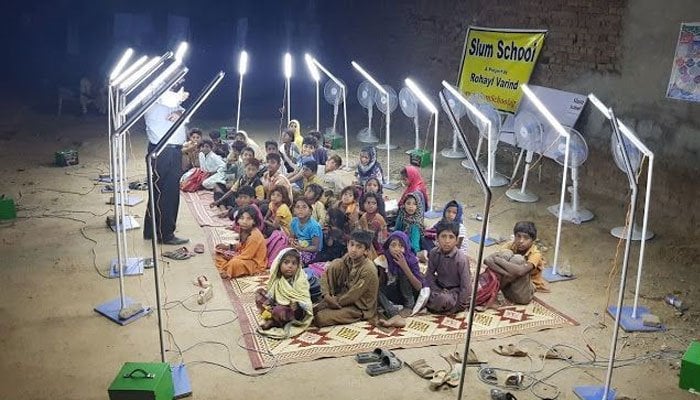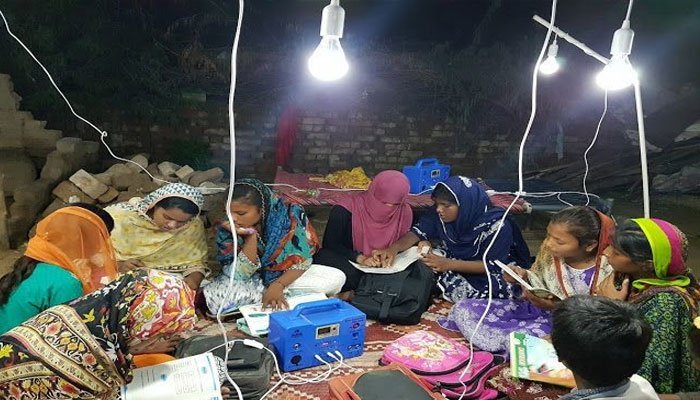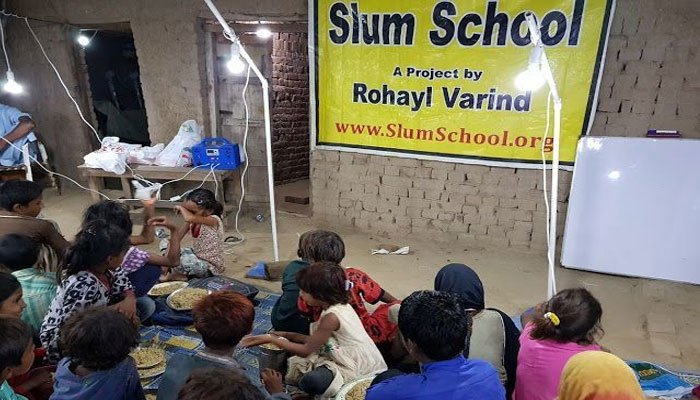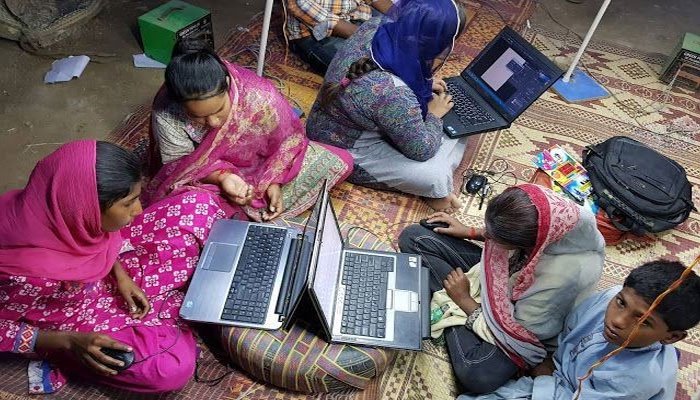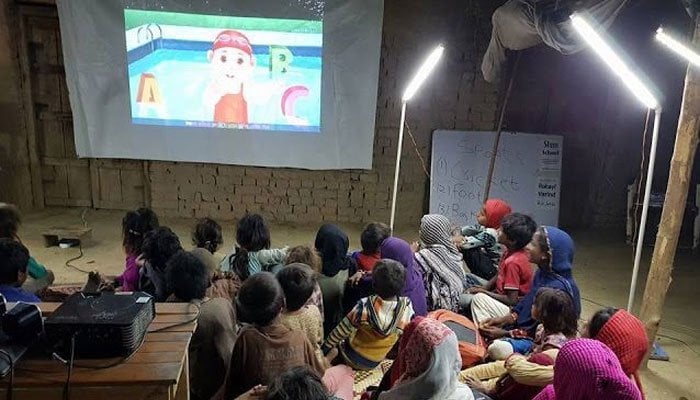Faisalabad roadside 'Slum School' being run on solar power for night time classes
A roadside school for the underprivileged in Faisalabad has become the talk of town for being run on solar power for its night time classes.
A roadside school for the underprivileged in Faisalabad has become the talk of town for being run on solar power for its night time classes.
As reported on the website of the World Economic Forum, the ‘Slum School’ was established by a 23-year-old named Rohayl Varind in 2016 to provide education for the children living in adversity.
The article further reveals that the charity school instead of accepting monetary form of donations urges donors to drop in stationery, food and electronic devices such as laptops to help in the learning process of the students.
The school’s donation list has now made an addition of solar powered equipments as well which were being utilized since the beginning to not just light up the school at night but to power fans, and IT equipments also.
“Where my Slum School is located, there is no electricity so I considered solar energy the best alternative. It’s free and easy to install and use," stated Varind who teaches English, Urdu, math and science to the children from 7pm to 9pm.
The educationist’s friends and several activists also assist him in his noble cause by teaching other subjects like computer, Taekwondo, graphic design to over 100 students enrolled.
"They start working as house helps or maids. Many boys start working at paan (betel leaf) shops or tea stalls, cafés or restaurants as waiters or cleaners. One thing is common in majority of child labourers is that they work the whole day and get free at night,” he stated.
-
Security forces gun down 30 terrorists in multiple IBOs in KP: ISPR
-
MQM-P calls for new province in Sindh
-
US report validates Pakistan military edge over India: PM
-
Banned TTP poses serious threat to Pakistan security: UNSC panel
-
CM Afridi clarifies remarks on by-poll after ECP requests army deployment
-
Dubai sees 3.2m Pakistani passengers in 2025 as airport sets new milestone
-
Security forces kill 23 Indian proxy terrorists in KP's Kurram
-
Pakistan to construct island to boost oil exploration: report
